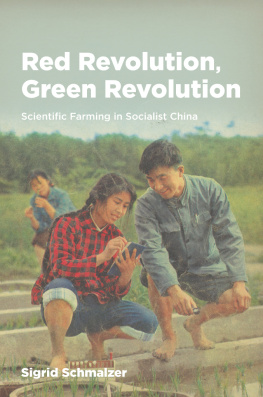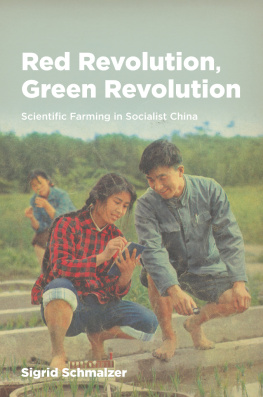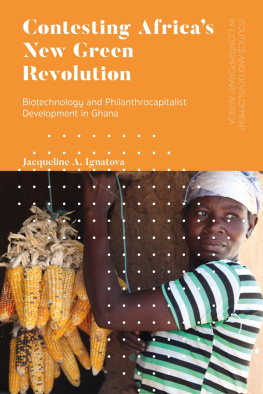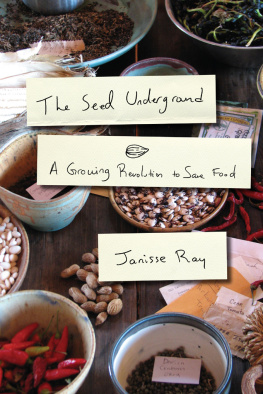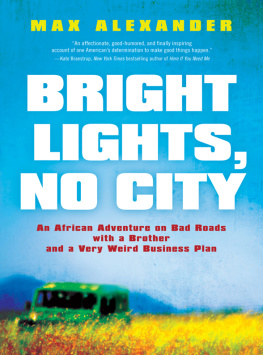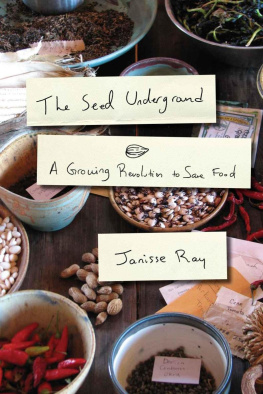Politics and Development in Contemporary Africa
Published by one of the worlds leading publishers on African issues, Politics and Development in Contemporary Africa seeks to provide accessible but in-depth analysis of key contemporary issues affecting countries within the continent. Featuring a wealth of empirical material and case study detail, and focusing on a diverse range of subject matterfrom conflict to gender, development to the environmentthe series is a platform for scholars to present original and often provocative arguments. Selected titles in the series are published in association with the International African Institute.
The principal aim of the International African Institute is to promote scholarly understanding of Africa, notably its changing societies, cultures, and languages. Founded in 1926 and based in London, it supports a range of seminars and publications, including the journal Africa .
www.internationalafricaninstitute.org
Managing Editor: Max Vickers
Series Editors: Jon Schubert (Brunel University) and Elliot Green (London School of Economics and Political Science)
Editorial Board
Rita Abrahamsen (University of Ottawa), Morten Boas (Norwegian Institute of International Affairs), David Booth (Overseas Development Institute), Padraig Carmody (Trinity College Dublin), Neil Carrier (University of Bristol), Fantu Cheru (Leiden University), Kevin Dunn (Hobart and William Smith Colleges), Amanda Hammar (University of Copenhagen), Alcinda Honwana (Open University), Paul Jackson (University of Birmingham), Gabrielle Lynch (University of Warwick), Zachariah Mampilly (Vassar College), Henning Melber (Dag Hammarskjld Foundation), Garth A. Myers (Trinity College Hartford Connecticut), Lonce Ndikumana (UMass Amherst), Cyril Obi (Social Science Research Council), Susan Parnell (University of Cape Town), Mareike Schomerus (Overseas Development Institute), Laura Seay (Morehouse College), Howard Stein (University of Michigan), Mats Utas (Uppsala University), Alex de Waal (Tufts University)
Already published:
Mobility between Africa, Asia and Latin America: Economic Networks and Cultural Interactions , edited by Ute Rschenthaler and Alessandro Jedlowski
Agricultural Reform in Rwanda: Authoritarianism, Markets and Spaces of Governance , Chris Huggins
Liberias Female Veterans: War, Roles and Reintegration , Leena Vastapuu and Emmi Nieminen
Food Aid in Sudan: A History of Power, Politics and Profit , Susanne Jaspars
Kakuma Refugee Camp: Humanitarian Urbanism in Kenyas Accidental City , Bram J. Jansen
Development Planning in South Africa: Provincial Policy and State Power in the Eastern Cape , John Reynolds
Uganda: The Dynamics of Neoliberal Transformation , Jrg Wiegratz, Giuliano Martiniello, and Elisa Greco
AIDS in the Shadow of Biomedicine: Inside South Africas Epidemic , Isak Niehaus
Negotiating Public Services in the Congo: State, Society and Governance , Tom De Herdt and Kristof Titeca
BRICS and Resistance in Africa: Contention, Assimilation and Co-Optation , edited by Justin van der Merwe, Patrick Bond, and Nicole Dodd
Ironies of Solidarity: Insurance and Financialization of Kinship in South Africa , Erik Bhre
Africas Shadow Rise: China and the Mirage of African Economic Development , Pdraig Carmody, Peter Kragelund, and Ricardo Reboredo
Malawi: Economy, Society and Political Affairs , edited by Matthias Rompel and Reimer Gronemeyer
Entrepreneurs and SMEs in Rwanda Conspicuous by Their Absence , David Poole
Forthcoming titles:
Youth on the Move: Views from Below on Ethiopian International Migration , Fana Gebresenbet and Asnake Kefale
Politics of Fear in South Sudan: Generating Chaos, Creating Conflict , Daniel Akech Thiong
Decolonizing Civil Society in Mozambique , Tanja Kleibl
War, Women and Post-Conflict Empowerment: Lessons from Sierra Leone , Josephine Beoku-Betts and Fredline MCormack-Hale
Angolas Securitized State: Reframing Hegemonic Power and National Identity , Paula Roque
Economic Diversification in Nigeria: Fractious Politics and an Economy Beyond , Zainab Usman
Jacqueline A. Ignatova is an Assistant Professor of Sustainable Development at Appalachian State University in Boone, North Carolina. Her work has been featured in Third World Quarterly and African and Black Diaspora: An International Journal .
When I was preparing my application for a Fulbright fellowship in 2011 to study the unfolding debate around genetically modified crops in Ghana, I knew that I might be a bit early to the scene. I got reassurance by my workshop participation and interviews in DC that Ghana would soon be both a new site for confined field trials of genetically modified crops and a target of new Green Revolution for Africa interventions promoted by a global assemblage of actors in development, agriculture, and philanthropy. Ghana is the furthest along, with regard to the introduction of genetically modified crops in West Africa, one DC-based development official knowledgeable about global biotech trends told me. Yet, when it came to identifying a Ghanaian anti-GMO or food sovereigntyrelated activist organization tracking these developments, I came up short.
I decided to send an email to Bakari Sadiq Nyari, someone I understood from my office in Baltimore to be a food and land sovereignty activist, who had written a compelling expos of biofuel land grabbing in northern Ghana. He had passionately condemned a Norwegian biofuel company that tried to establish the largest jatropha A few months following my e-mail, Mr. Nyari wrote that he would be happy to work with me and would connect me to the executive director of RAINS, a Tamale-based NGO that focuses on intergenerational knowledge exchange in agriculture and gender equity work in education. If there was not yet a big debate about GMOs in northern Ghana, I thought an organization like RAINS and Nyaris work on land grabbing would be the likely source of its murmurings.
It turned out that Mr. Nyari is far more than a food and land sovereignty activist. Nyaricontrary to my initial impression upon reading his exposis a big man in Ghana and through his former service as national chairman of Ghanas Lands Commission has been involved in part of these so-called new Green Revolution (nGR) interventions. Additionally, Nyari was the Director of the Lands Commissions Public and Vested Lands Management Division and the Principal Lands Officer of the Upper East Regional Lands Commission, as well as a part-time university lecturer in land economics. He co-owns a hotel with his wife, serves as a principal consultant at Premium Property Consult, has an extensive garden, raises quail, and is growing the Alliance for a Green Revolution in Africa


